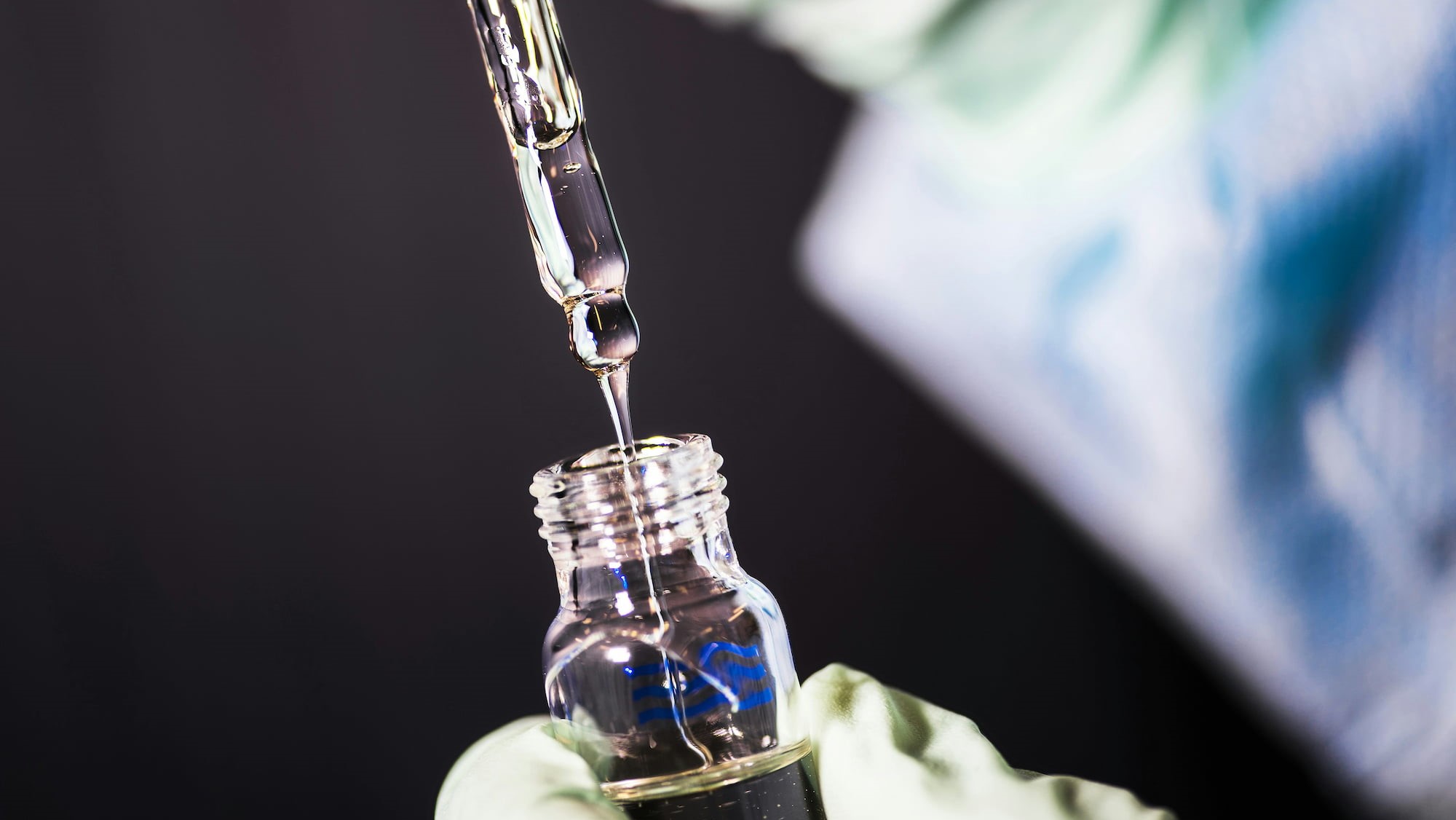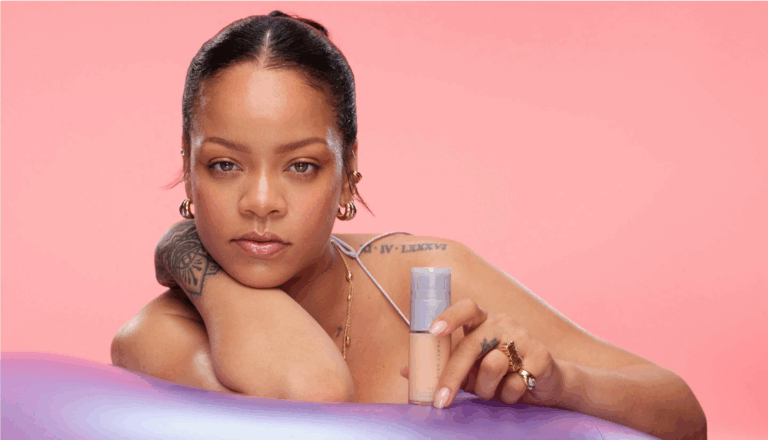By 2024, China’s beauty & personal care market is expected to yield a revenue of RMB 499.7 billion with a projected annual growth rate of 4.84% (CAGR 2024-2028). The driving forces behind this growth primarily stem from the cosmetics and skincare segments. Driven by Chinese consumers’ higher expectations for effective but safe and sustainable cosmetics and skincare, companies are increasingly looking to invest in biotechnology to develop their products, driving the growth of biotech beauty in China. Biotech beauty refers to the use of biotech in the development and production of cosmetics and skincare. The ingredients used are living organisms, which include bioengineered plant extracts, peptides, enzymes, and other biomolecules with specific skincare benefits.
Download our report on the She Economy in China

The perks of biotech alternatives: sustainability, safety, and personalization
A sustainable and cruelty-free alternative to traditional cosmetics
Many cosmetics use ingredients sourced from plants and animals. These products might face criticism due to concerns about the extensive natural resources used during their production. Furthermore, using animal-derived ingredients raises ethical issues, particularly regarding cruelty-free practices. This is the case for many lipsticks, foundations, eyeshadows, moisturizers and sunscreens, which contain squalene, an ingredient made from shark liver oil. In that regard, biotech beauty is a sustainable and cruelty-free alternative since the ingredients are developed in laboratories. The sustainability aspect of biotech beauty aligns with Chinese consumers’ evolving preferences. According to our survey of 1,000 respondents, 72% of them see environmental sustainability as important for beauty products, and 19% considering it very important.
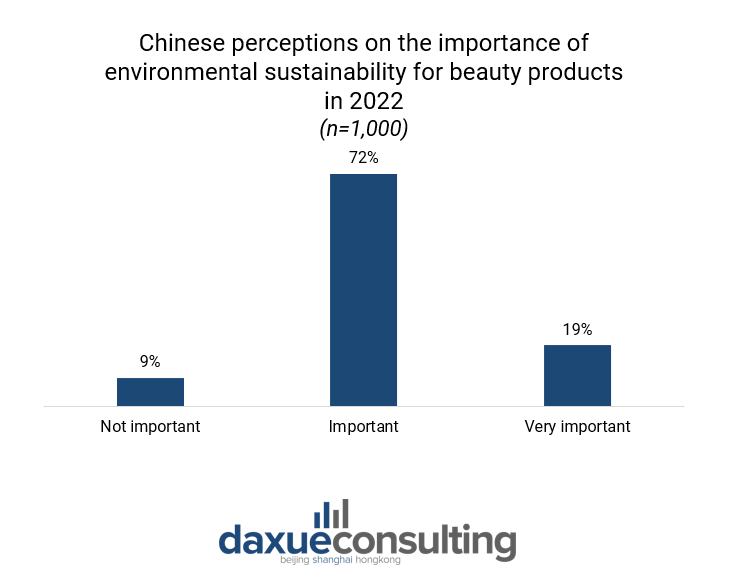
Elevating quality control and safety in cosmetic manufacturing
Biotech beauty offers a solution to numerous challenges associated with traditional manufacturing methods, providing enhanced quality control and minimizing impurities. The standardization of ingredients is maintained across every batch. In contrast, quality control is challenging for companies sourcing traditional cosmetic components from farms, mines, or fisheries. Moreover, in 2023, 16% of Chinese cosmetics consumers reported having sensitive skin, which leads to issues when using certain products. As naturally derived ingredients do not undergo the same safety testing as lab-engineered counterparts, there is a higher likelihood of them causing irritation and allergies. Therefore, biotech processes not only offer a more controlled and reliable approach, ensuring a higher level of safety at each stage of production, but they could also provide a solution for consumers with sensitive skin.
Biotech’s role in personalized cosmetic solutions
Biotech beauty is revolutionizing the cosmetic industry by integrating advanced technologies such as genetic analysis and skin assessments to create personalized solutions. This innovative approach enables the customization of beauty products according to individual skin types, concerns, and genetic predispositions, ultimately boosting efficacy and customer satisfaction.
The popularity of customized cosmetics in China has experienced a significant upswing in recent years. Both foreign giants like L’Oréal and Shiseido, and local brands such as Yue Sai (羽西), are capitalizing on this trend by offering tailored beauty solutions. As consumers become increasingly discerning and seek products that address their unique needs, biotech beauty emerges as a key player in meeting these demands.
The overlap and divergence of clean beauty and biotech beauty
Clean beauty and biotech beauty share a connection through their commitment to cruelty-free and sustainable production methods. However, they diverge in key aspects. Clean beauty emphasizes natural, non-toxic ingredients like plant extracts, adhering to a holistic, nature-centric philosophy. In contrast, biotech beauty employs lab-engineered ingredients, prioritizing scientific advancements and cutting-edge innovation in biotechnology and molecular biology for precise solutions.
Foreign beauty giants embrace Chinese biotech: L’Oréal and Shiseido
L’Oréal invests in Chinese biotech start-up to develop sustainable cosmetics
In March 2022, L’Oréal already took a significant stride towards achieving its 2030 objectives of integrating 95% bio-based ingredients into its cosmetics. This involved investing in a venture spearheaded by Geno, a biotechnology company. In September 2023, L’Oréal announced its investment in Shinehigh Innovation, a Chinese biotech start-up. This collaboration is a strategic move to foster the development of sustainable beauty solutions and solidify L’Oréal’s presence in the Chinese beauty market. At the same time, it shows L’Oréal enduring confidence in the Chinese market and emphasizes its pivotal role as the inspiration cradle for future innovation within the Groupe, as expressed by the CEO.
Shiseido Beauty Innovations Fund invests in biotech to strengthen the China business
In 2022, Shiseido Beauty Innovations Fund announced its investment in Jiangsu Trautec Medical Technology Co., Ltd. (Trautec), a prominent Chinese biotech company specializing in non-animal recombinant collagen-based. As the primary investor, Shiseido China demonstrated its commitment to fostering innovation by dedicating nearly RMB 100 million to support Trautec’s research. Shiseido is aiming to collaborate in product research and development, ensuring a stable raw material supply chain, and expanding sales channels. This collaboration underscores Shiseido’s dedication to remaining at the forefront of transformative technologies in the beauty and biotech sectors. Moreover, this particular investment was motivated by Shiseido’s wish to enhance its business portfolio in China, and strengthen the China business, which is one of the pillars of the company’s medium-to-long-term strategy. Similar to L’Oréal, Shiseido’s CEO has conveyed confidence in the Chinese market, leading to the initiation of the Shiseido Beauty Innovations Fund. This fund is designed to invest in promising companies in the cosmetics and wellness sectors in China.
PROYA: Chinese cosmetics company pioneers skincare innovation through alliances with foreign labs
PROYA, a leading Chinese skincare brand, has ventured into biotechnology through strategic investments and partnerships. The company has invested in Siyomicro Bio-Tech Co Ltd. and formed a strategic alliance with Zhejiang Peptites Biotech Co Ltd., focusing on peptides’ innovative research and development, including green synthesis and raw material production. Beyond these two local biotech companies, PROYA has ventured beyond borders to collaborate with global laboratories like BASF, DSM, Ashland, LipoTrue, the international peptide family in Spain, CODIF, the French marine biotechnology expert, and CEVA, the French national seaweed research institute. Currently, PROYA has established collaborations with over 100 high-quality raw material brands from more than 20 countries, spanning Europe, America, and Japan. This reflects PROYA’s commitment to advancing skincare innovation and its ambition to be a local key player in biotech beauty.
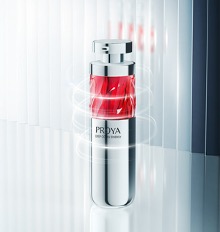
How Bloomage Biotech, Chinese leader in fermentation technology, built its brand
Bloomage Biotech (华熙生物) stands as the pioneering Chinese company to employ fermentation technology to produce Hyaluronic acid. This innovative approach not only positions Bloomage as a trailblazer in biotechnology but also opens doors for collaborations and expansion within the beauty and skincare industry. Currently, Bloomage Biotech’s raw materials are sold in more than 70 countries and regions, and the company has established stable commercial relationships with over 2,000 brands. The company gained notable recognition by winning the Fountain Awards at the Asia-Pacific international event in February 2023. These prestigious awards specifically acknowledge the outstanding performance of Bloomage Biotech’s products, namely Hybloom™ Zinc (HA-Zn) and Hyanutra™-RH Hair Nourishing Shield. These products demonstrated exceptional efficacy in alleviating allergies, treating acne, and offering effective care for both hair and scalp.
Bloomage Biotech: a raw material supplier builds a B2C brand
Going beyond raw material manufacturing, Bloomage extends its expertise to offer a range of skincare products to end consumers through its brand Quadha (夸迪). From 2018 onward, there has been a substantial growth in the proportion of Bloomage Biotech’s B2C business revenue within the company’s overall revenue. From 2018 to 2021, this percentage has surged from over 20% to 60%. Quadha products are conveniently accessible on Tmall, where consumers have been actively sharing predominantly positive feedback about the brand’s offerings, notably for people with sensitive skin. The hyaluronic acid serum stands out as one of the most popular items, with over 300,000 purchases.
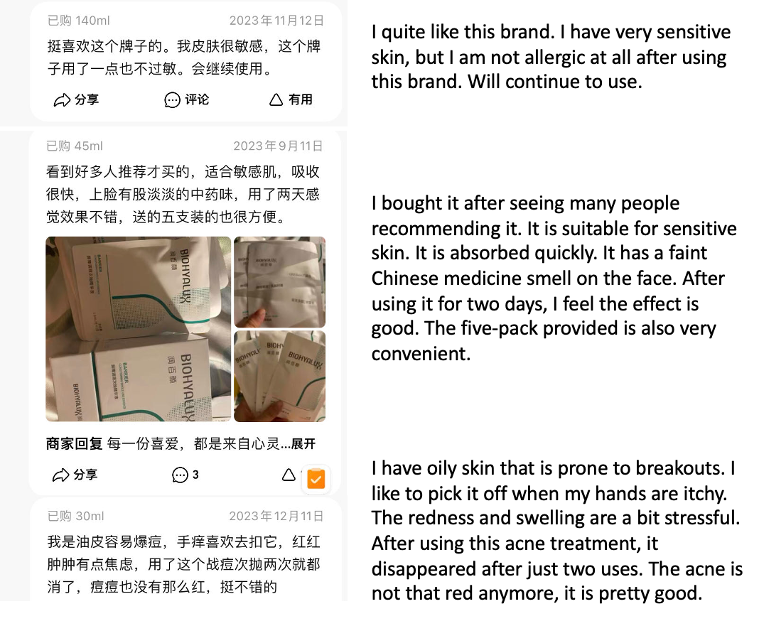
Insights unveiled: what biotech beauty in China teaches us
- The demand for biotech beauty in China is fueled by its benefits in terms of sustainability, safety, quality, and personalization.
- Big foreign cosmetics companies like L’Oréal and Shiseido are investing in Chinese biotech companies, emphasizing long-term confidence in China and their commitment to sustainability.
- The Chinese cosmetics company PROYA is at the forefront of skincare innovation, delving into biotechnology through strategic investments and partnerships with both local companies, as well as global laboratories, showcasing its commitment to advancing biotech beauty in China but also on a global scale.
- Bloomage Biotech pioneers skincare innovation with fermentation technology, winning global acclaim and transitioning from a raw material supplier to a successful B2C brand.


